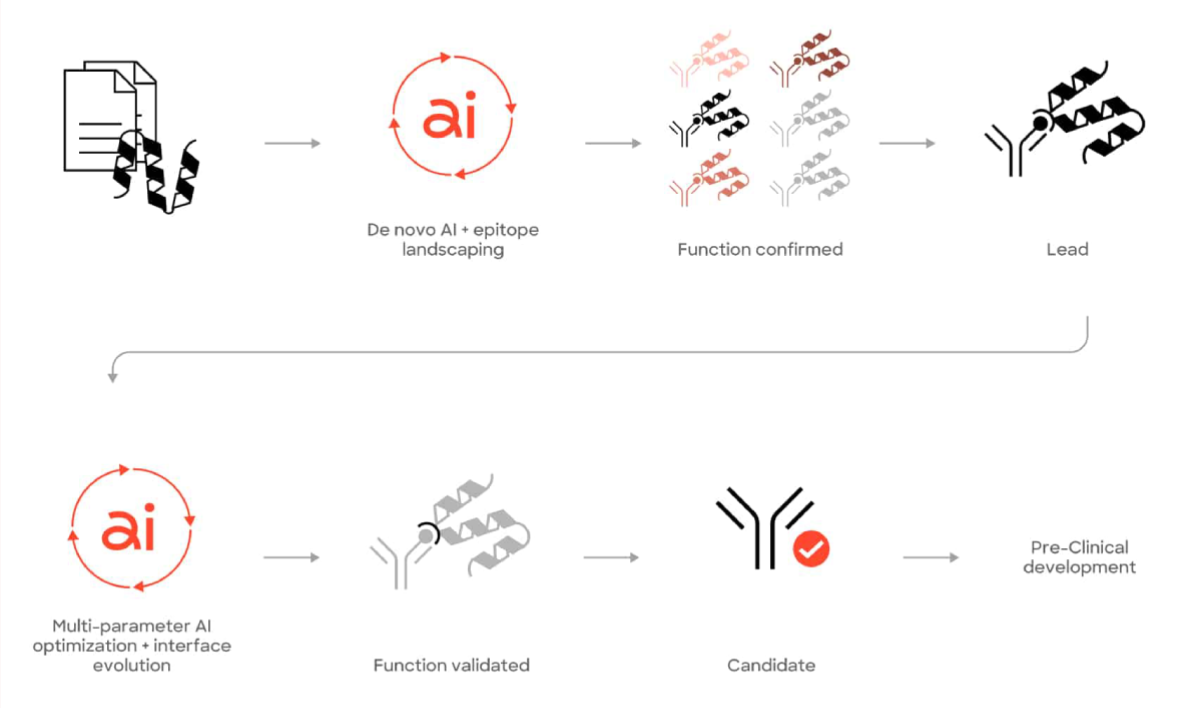Oracle, AMD and Absci Collaborate to Scale AI-Driven Drug Discovery
Absci has entered a collaboration with Oracle and AMD to expand the performance and scale of its AI-based drug discovery platform. The agreement is centered on Oracle Cloud Infrastructure (OCI) and AMD’s new Instinct MI355X GPUs, which are expected to accelerate Absci’s biologics design cycles while reducing computational costs.
Under the collaboration, Absci has consolidated its infrastructure on Oracle Cloud Infrastructure (OCI) to develop and scale its AI models. OCI provides bare metal instances with 5th Generation AMD EPYC processors, Compute E6 instances, high-performance storage, and RDMA cluster networking. This configuration reportedly enables low-latency training of large generative models and high-resolution molecular dynamics simulations by eliminating hypervisor overhead, reducing inter-GPU latency to as little as 2.5 microseconds, and supporting terabytes-per-second throughput for checkpointing and data streaming.
Absci, based in Vancouver, Washington, develops therapeutics using its generative AI Drug Creation Platform, which integrates advanced AI models with a synthetic biology data engine. The company operates a 77,000-square-foot wet lab that produces proprietary datasets through technologies such as SoluPro, which generates cells expressing proteins of interest, and the ACE Assay, which screens antibody sequence variants.

Absci's AI drug creation workflow; Image Credit: Absci
These proprietary data sources are combined with large public biological datasets to train Absci’s generative models for antibody design. The platform supports de novo antibody creation by targeting epitopes on antigens, generating novel designs and applying multiparametric optimization. Absci has reported that its AI has already designed and optimized a potential best-in-class TL1A antibody. The company also maintains an AI Research Lab in New York City and an Innovation Center in Switzerland.
Oracle, an enterprise software and cloud provider, positions OCI for demanding AI workloads such as frontier model training, agentic AI, scientific computing, and large-scale inference. Its Supercluster architecture can scale to 131,072 GPUs with RDMA networking, reportedly providing throughput at zettascale levels for workloads like Absci’s that require predictable performance and close engineering collaboration. In May 2025, Oracle also rebuilt its EHR platform from the ground up to support AI-native workflows.
AMD’s Instinct MI355X GPUs, combined with EPYC CPUs and the ROCm open software platform, will be integrated into Absci’s workflows to enhance training speed and simulation performance. According to AMD, this combination is designed to support large-scale biologics design and improve efficiency in discovery pipelines.
Cover image: Absci
Topic: Tech Giants